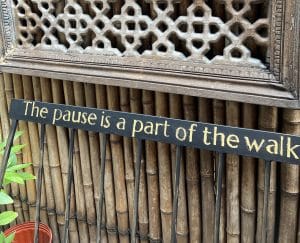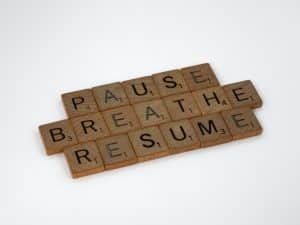
Meditation is supposed to be relaxing. It’s supposed to make you feel less stressed, more chill, and maybe even a little blissed out…or so they say. Realistically, I’d say that’s sometimes true. Meditation and other types of mindfulness do activate many of your body’s relaxation cues – regulated breathing, slowed heart rate, and decreased cortisol levels, for example – but quieting that inner voice of ours can be a bit more work than we expect. Sometimes, it cooperates and makes way for a few calm and centered moments. Other times, it might feel more like a panel of judges has infiltrated your brain, and decided to share all the “constructive feedback” you never asked for all at once. Unless you’re auditioning for a reality talent show, it’s well within your power to tell that panel that all that feedback they’re offering is nothing but noise.
Easier said that done, of course, because the panel is comprised of you, you, and you. It’s often said that we are our own worst critics, and even in mindfulness, we can’t escape it. It’s not an accident that Jon Kabat-Zinn, who is credited with initiating the modern, Western mindfulness movement, included the word “non-judgmentally” in his definition of the term. Can I pay attention to the present moment? Sure. Can I do it without judging others, or myself? Well…that’s different.
Because mindfulness makes us more aware of what’s going on both around and within us, it can also make us more aware of our perceived imperfections, or the things about ourselves we wish we could change. When it does, it may bring along some familiar companions – self doubt, low self-esteem, and self-judgment, among others. We’re not always very nice to to ourselves when we realize we’re nervous, uncertain, or scared. Our inner voice often emphasizes the first part of “tough love” over the second. It may not be until we start practicing mindfulness that we realize we’re being a tad harsh on ourselves. Negative emotions make us feel vulnerable, and kind of an easy target for criticism. So the answer is to just be nicer, right? Well, we would, if we didn’t think we needed it so much.
High-achievers like all of you are more likely to know exactly what this voice sounds like. It’s the one that kicks you in the butt when you’re wallowing, and makes you get up and keep going. You might even credit it with a lot of your success. Where would you be without that inner drill sergeant barking at you to just stop feeling whatever you’re feeling, get over yourself and get going? Well, that depends. In the South we have a saying that you can catch a whole lot more flies with honey than vinegar, so it might be worth trying a little tenderness for a change.
There’s also the possibility that all that internal tough talk isn’t actually helping you out. What if it’s actually holding you back, convincing you that you aren’t good enough, smart enough or worthy enough? Not even a fly needs to listen to that. Just because that voice is there doesn’t mean it speaks the truth. Bullies are loud, but empty inside. In the presence of a strong exhale, they lose a lot of the wind in their sails.
The next time you’re seeking some calm, if your internal self gets a little contentious, don’t fight back. Just breathe. Be compassionate with yourself. I promise you won’t become a permanent slacker. On the contrary, you may find you are capable of more than your thoughts let you think you are.
Photo credit: Angelina Litvin




4 thoughts on “Constructed criticism”
Great topic as always…..can you be the voice in my head??
Thanks, Kendra! Lol – I’m busy enough in my own!
Pingback: No-Fail Friday: Best wishes | MindfulMBA
Pingback: “No-Fail” Friday: Friend zone | MindfulMBA